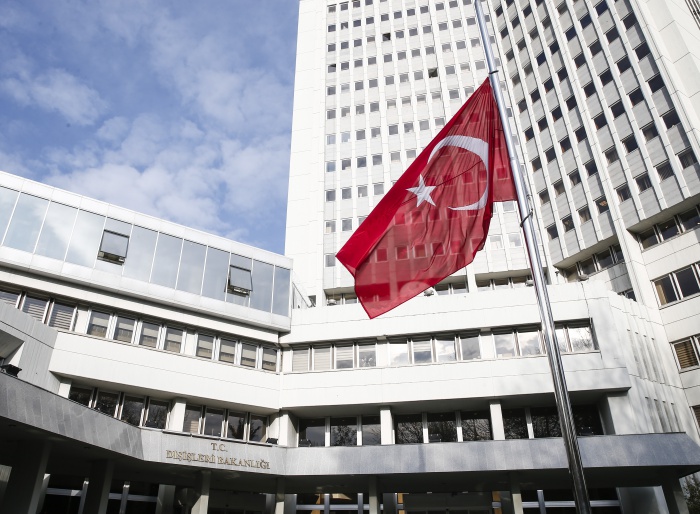The Turkish Foreign Ministry on Thursday issued a statement in response to a call by the UN High commissioner for human rights that Turkey end an ongoing state of emergency prior to snap elections in June, saying that credible elections cannot be held in an environment where dissenting views and challenges to the ruling party are severely penalized.
Calling the UN statement “biased,” politically motivated and including “unfortunate phrases imposing terms of governance for an independent state,” the Foreign Ministry said: “In Turkey, State of Emergency measures are implemented only against terrorists and terror related circles. There are no measures restricting rights and freedoms of our citizens. State of Emergency does not constitute an obstacle to hold democratic elections.”
The state of emergency was declared for three months on July 20, 2016 after a failed coup attempt on July 15, 2016 and was extended for the seventh time in April 2018. The state of emergency has granted President Recep Tayyip Erdoğan and his government extraordinary powers under which the government has pressed ahead with many controversial decrees that have the force of law and are not required to be approved by Parliament.
In line with these decrees, more than 150,000 people have been purged from state bodies on coup charges. The dismissals are part of a witch-hunt pursued by Erdoğan targeting alleged members of the faith-based Gülen movement, accused by the government of masterminding the attempted coup despite strong denials by the group of any involvement.
The Foreign Ministry statement also said, “Furthermore, it was confirmed by the international observation missions that the elections in Turkey, including the referendum that took place in April 2017, were held in a democratic, free, fair and transparent manner,” in reference to a referendum that changed Turkey’s system of governance from a parliamentary to a presidential model and significantly increased the powers of the president without the benefit of any checks and balances.
Election observers from the Organization for Security and Co-operation in Europe (OSCE) who were tasked with evaluating the legitimacy of the referendum found the election to be imbalanced and democratic freedoms curtailed.
OSCE observer Tana de Zulueta concluded that “The referendum took place in a political environment in which fundamental freedoms essential to a genuinely democratic process were curtailed under the state of emergency, and the two sides did not have equal opportunities to make their case to the voters.”
Claiming that the declaration of a state of emergency is a right granted by international law, the Foreign Ministry said, “We continue the necessary cooperation with international organizations for the elections to be held in 24 June in accordance with our international commitments.”
Turkey will hold snap presidential and general elections on June 24, a year and a half earlier than originally scheduled.
